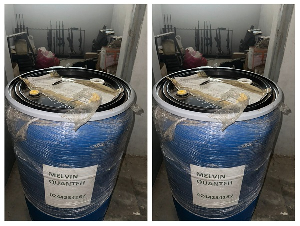Tarkwa (Western Region) 20 April
A report on a survey carried on population, poverty and environmental degradation in the Nzema East, Wassa West and Sefwi Wiawso districts in the Western Region revealed that large-scale mining, logging and farming, chemical pollutionand the disposal of sawdust were major concerns of the people in the Wassa West District.
A common problem was the poor sources of water supply, with only 35 percent of the people having access to potable water. Poor road net work, encroachment of forest reserves and extensive soil erosion in Sefwi Wiawso were also identified.
A team of researchers headed by Professor George Benneh former Vice Chancellor of the University of Ghana, Legon, conducted the survey, whichwas sponsored by the United Nations Fund For Population Activities (UNFPA).
It was on Monday presented at a day's workshop at Tarkwa. Participants at the workshop included district chief executives, district co-ordinating directors, presiding members, and district planning officers, assembly members and heads of departments.
The survey recommended the immediate tackling of sanitation at the Axim beach, in the Nzema East District, which has a potential for the outbreakof cholera due to dumping of waste at fish landing points. The report recommended that the assemblies should consider the mode of land acquisition for mining and large scale agriculture. They should also monitor the operations of logging companies to conserve the forest, and to protect the sources and courses of rivers.
Dr. A. M. Abane of the Department of Geography and Tourism, University of Cape Coast, said the rationale for the study was to understand the dynamics and inter-relationship among population, poverty and utilisation of the environment. He said the districts were chosen on the basis of the available evidence of a possible environmental stress from the different economic activities in the region.












